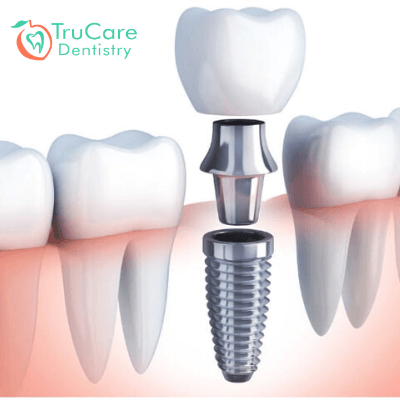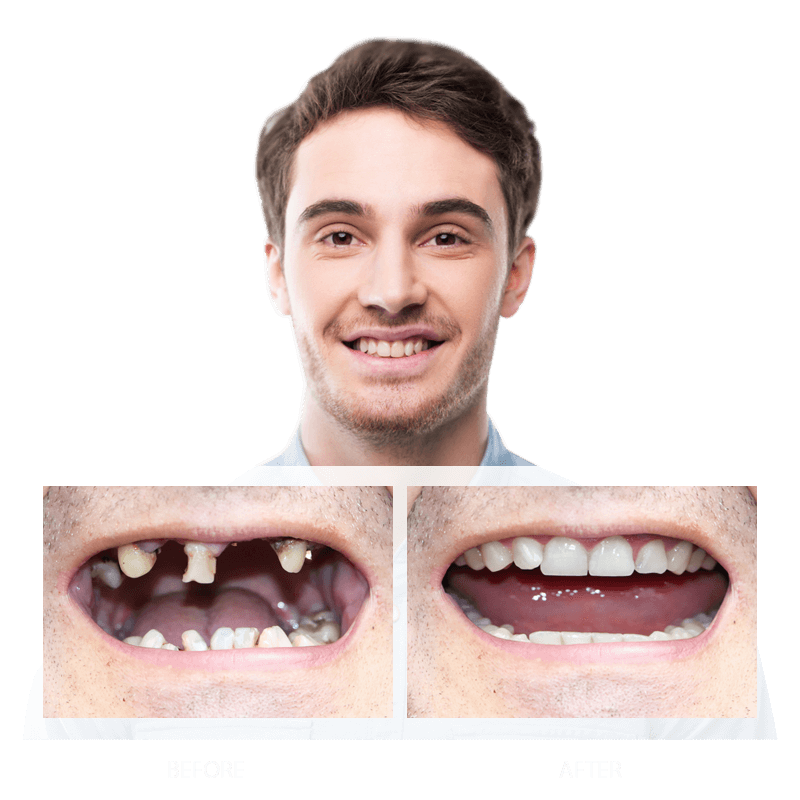Implants Dental Implants Grand Rapids MI - Best Dental Implants
When considering dental implants, understanding the anesthesia options obtainable is vital for a comfortable experience. Patients often really feel anxious about dental procedures, making effective pain management here a crucial part of the remedy plan.
Local anesthesia is the most common alternative for dental implant surgeries. This kind of anesthesia numbs a selected area within the mouth where the implant shall be placed. The purpose is to ensure that the patient doesn't feel any pain in the course of the procedure.
Implant Dental Grandville MI - Full Mouth Dental Implants
Dentists frequently use injectable local anesthetics like lidocaine or articaine. These anesthetics work quickly and effectively, allowing the dentist to carry out the surgery whereas the affected person stays awake and relaxed. This is commonly accompanied by sedation to administer nervousness ranges.
Sedation dental implants might make the most of a mixture of native and sedation options. Intravenous (IV) sedation could be notably helpful for patients with heightened anxiousness or those undergoing in depth procedures. This technique allows the dentist to regulate the extent of sedation, making the affected person drowsy however not completely unconscious.
Some patients would possibly favor oral sedation, which entails taking anti-anxiety medication before the appointment. This approach permits individuals to really feel relaxed and calm as they arrive for the dental procedure. Dental Teeth Implants Holland MI. Although the affected person remains awake, they might have little to no memory of the surgery itself
General anesthesia is one other viable choice, particularly for complicated instances. In this case, the patient is entirely unconscious through the surgery, guaranteeing that they experience no pain or awareness of the procedure. General anesthesia is often reserved for intensive surgical procedures or for patients who can't tolerate native anesthesia.
Dental Tooth Implant Grand Rapids MI - Guide to Dental Implants: A Popular Option for Tooth Replacement
The alternative of anesthesia also can depend upon particular person affected person components, such as their medical history, degree of hysteria, and the complexity of the implant surgery. Dentists usually consider these components to tailor an acceptable anesthesia plan.
A thorough pre-operative session is important. During this consultation, sufferers should ask questions and express any concerns concerning the anesthesia choices. Understanding what to expect can significantly reduce anxiousness levels and facilitate a smoother expertise.

Post-operative care is essential after receiving anesthesia of any kind. Patients are sometimes suggested to have somebody drive them residence in the event that they acquired sedation or common anesthesia. This precaution helps guarantee security, as sufferers might really feel drowsy or disoriented afterward.
Patients could expertise some discomfort post-surgery, however this will often be managed with over-the-counter pain relievers. The dentist will provide guidelines and proposals for pain management, allowing for a more comfortable recovery.
Cheap Dental Implants Muskegon Heights MI - Dental Implants Surgical Technique Videos
In the times following the surgery, attending follow-up appointments is important for tracking therapeutic and addressing any potential issues. These appointments give the dentist a possibility to gauge the implant site and the effectiveness of the anesthesia used.
Ultimately, the aim of using the best sort of anesthesia is to supply a protected, effective, and pain-free expertise for patients receiving dental implants. Each patient's needs are unique, and the anesthesia plan ought to mirror this individuality.
An informed choice regarding anesthesia can dramatically have an result on the overall expertise with dental implants. Those looking for this therapy should really feel empowered to have interaction their dentists in conversations about anesthesia options. A collaborative method, where each dentist and patient work collectively, typically results in the most effective outcomes.
Implants Dental Procedure Wyoming MI - What are dental Implants?
Investing time to know the kinds of anesthesia available can ease considerations and result in a successful dental implant process. Whether opting for native anesthesia, sedation, or general anesthesia, sufferers will discover a appropriate methodology that aligns with their consolation degree and dental wants.
As extra individuals turn out to be educated about dental procedures and the associated anesthesia choices, the stigma around dental visits continues to diminish. More persons are embracing dental health and the life-changing advantages of dental implants. With the right method to anesthesia, both the process itself and the recovery could be characterized by minimal discomfort and stress.
Dental Implants Muskegon Heights MI - Dental Implants - Benefits, Types, Cost
By prioritizing efficient pain management strategies, dental professionals can considerably improve the general experience for sufferers in search of dental implants. Choosing the right anesthesia is a elementary a part of that strategy, paving the means in which for improved dental health and restored confidence with a wonderful smile.
The collaborative effort between dentist and patient finally defines the success of dental implant procedures. Emphasizing communication in regards to the kinds of anesthesia and what to expect can help mitigate fears. Empathy, understanding, and expert care are the cornerstones of any profitable dental expertise.
Moving ahead, sufferers can trust their dental care providers to information them in making one of the best selections concerning anesthesia for his or her particular situations. Together, they'll work toward achieving optimal results and a positive journey towards new dental health.
- Local anesthesia is commonly used for dental implants to numb the precise space of the mouth the place the procedure takes place, allowing patients to stay awake and comfy.
- Sedation dentistry can be utilized alongside local anesthesia, providing deeper rest for sufferers who may experience nervousness or discomfort in the course of the process.
- General anesthesia could additionally be an option for patients undergoing more complex implant surgeries, enabling them to be utterly unconscious through the process.
- The selection of anesthesia typically is dependent upon the patient’s medical historical past, anxiousness ranges, and the complexity of the implant placement.
- Regional anesthesia, corresponding to a nerve block, could be employed to offer targeted pain relief to larger areas of the mouth during implant surgery.
- Oral sedatives may be prescribed to be taken earlier than the appointment, enhancing consolation ranges and decreasing pre-surgery nervousness.
- Anesthesia options should be mentioned totally through the consultation phase, permitting patients to express their preferences and issues.
- Recovery time and post-operative care could differ based mostly on the sort of anesthesia used, highlighting the significance of personalised anesthesia planning.
- Monitoring of vitals is crucial, particularly when sedation or common anesthesia is involved, to ensure affected person safety all through the process.
- Dentists sometimes present detailed aftercare her explanation instructions to manage discomfort and guarantee proper healing, regardless of the anesthesia technique chosen.
What type of anesthesia is used for dental implants?
Dental Implant Dentures Jenison MI - Dental Implants Tooth Replacement

What sort of anesthesia is often used during dental implant procedures?undefinedMost dental implant procedures utilize native anesthesia. This numbs the particular space the place the implant shall be positioned, guaranteeing you stay comfortable in the course of the surgery.
Is sedation dentistry obtainable for dental implants?undefinedYes, many dental practices provide sedation options like nitrous oxide (laughing gas) or oral sedatives. These can help manage anxiety and enhance comfort in the course of the process.
How effective is native anesthesia for dental implants?undefinedLocal anesthesia is extremely efficient for dental implants, as it targets the nerves within the space, permitting for a pain-free expertise during the surgery.

Can I request common anesthesia for my dental implant procedure?undefinedWhile some dental offices may accommodate requests for general anesthesia, it's typically reserved for complicated instances or patients with severe nervousness. It’s greatest to discuss this with your dentist.
Dental Implants Near Me Grand Rapids MI - Dental Implants: A 5-step plan to restoring your teeth
Are there any risks associated with anesthesia throughout dental implant surgery?undefinedWhile local anesthesia is taken into account safe, potential risks embody allergic reactions or complications related to sedation (Dental Implant Grand Haven MI). Always disclose your medical historical past to your dentist
How long does anesthesia final after dental implant surgery?undefinedLocal anesthesia typically lasts a few hours, though this will likely differ. You might experience numbness in the handled space for a short interval earlier than regular sensation returns.
Will I feel pain in the course of the dental implant procedure?undefinedWith effective local anesthesia, you shouldn't feel pain during the procedure. Some strain could additionally be felt, nevertheless it shouldn't be painful.
What ought to I do if I feel anxious about anesthesia during my dental implant appointment?undefinedCommunicate your concerns with your dentist. They can present details about the anesthesia used and offer sedation options to assist alleviate anxiousness.
Dental Implants And Dentures Jenison MI - What are dental Implants? Types, procedures, and more
Are there any aftercare instructions relating to anesthesia post-surgery?undefinedYes, it is crucial to avoid biting or chewing in the numbed area until sensation returns, as properly as to comply with any particular post-operative care instructions supplied by your dentist.